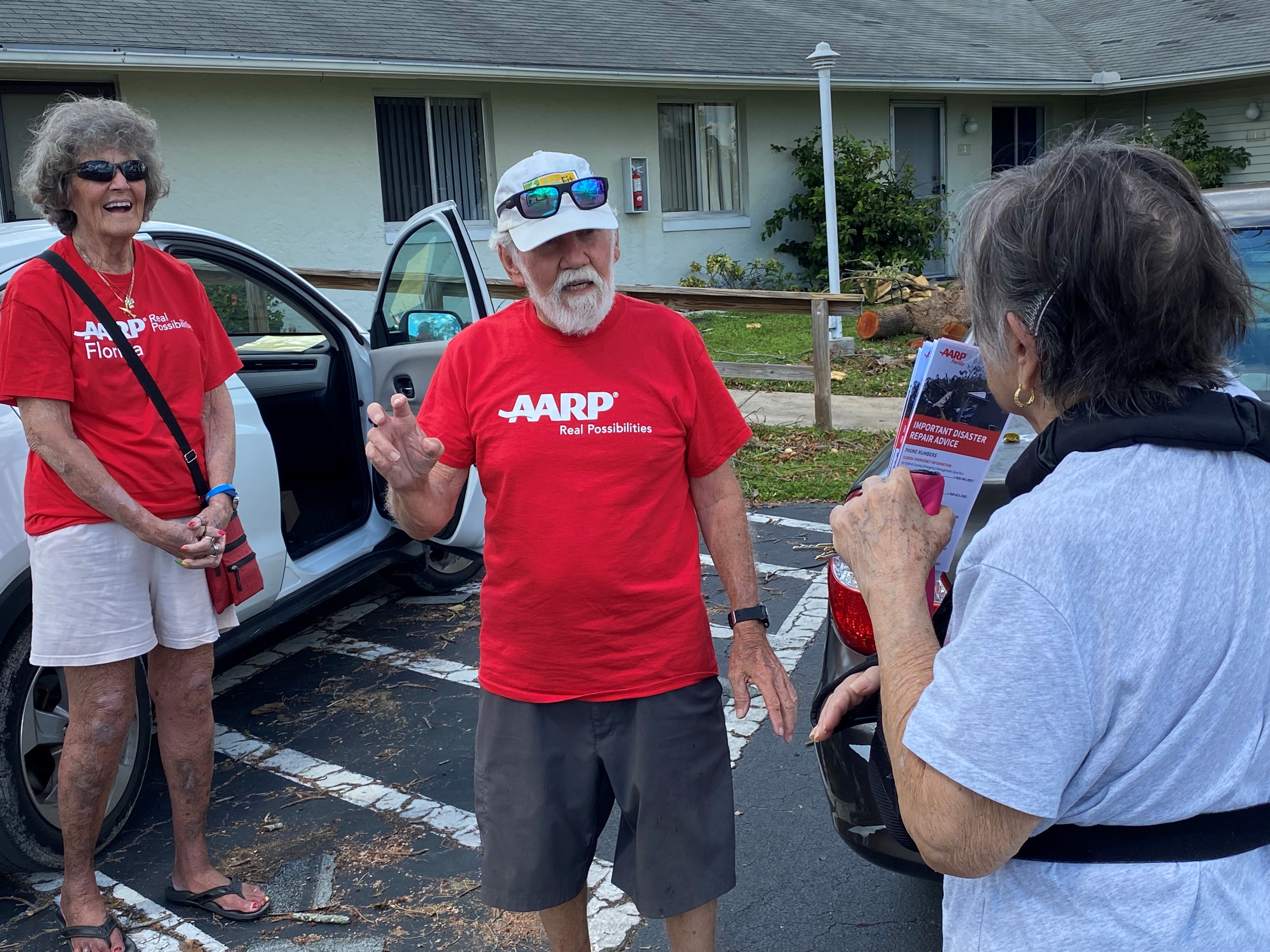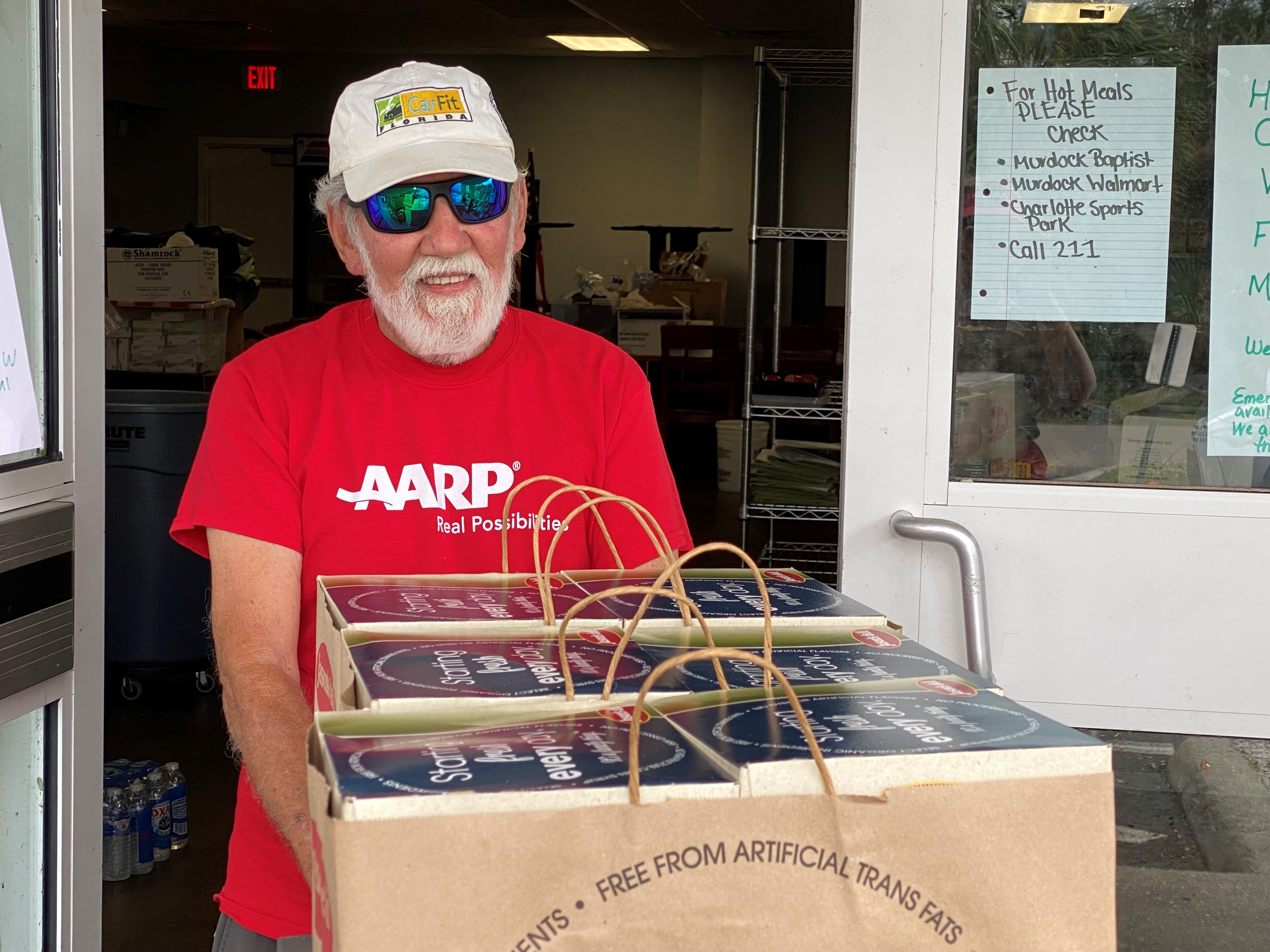AARP Hearing Center

Whether you need help to prepare for hurricane season, which runs from June 1 through Nov. 30, or assistance after a hurricane hits, AARP has a plethora of resources and volunteers ready to go.
People 50 and older are particularly vulnerable to hurricanes and other disasters.
When Hurricane Ian struck Southwest Florida in 2022, for example, at least 61 of the 87 fatalities were people at least 60 years old; 18 were in their 80s, and five in their 90s.

There are myriad reasons why older adults are more vulnerable than others. Many have difficulty getting around, often lack access to transportation, and do not have friends or family available to help. They may struggle financially, making it difficult to prepare for a hurricane or evacuate. After a hurricane, older adults are the most likely to fall prey to scam artists and unscrupulous contractors.
The key to surviving a hurricane and its aftermath is preparation, and AARP Florida has a disaster tool kit to help you plan. The tool kit is a resource for everyone – local leaders, government staff, aging services professionals, and community volunteers.
AARP Florida also has disaster preparation resources, including tips, checklists, scam prevention and protection information, and video libraries on the Hurricane Preparedness, Response & Resources (En Español). The AARP Florida YouTube channel also offers webinars on disaster preparation along with animated videos in English and Spanish).
AARP volunteers like Gloria Pearse of Port Charlotte are also ready to assist with recovery. Pearse, president of the AARP Port Charlotte chapter, knew from experience how difficult the aftermath can be. She survived Hurricane Charley in 2004, which destroyed 85 percent of her home. She fought with her insurance company in court for three years and had trouble finding contractors to rebuild.
So when Hurricane Ian struck Southwest Florida last year, she offered a friendly ear and advice for shell-shocked survivors. Because Ian’s force was centered around Fort Myers Beach, about 50 miles south of Port Charlotte, she had only minor damage to her home and was able to assist people who were worse off.
Along with AARP state and community engagement manager, Terry Elder, and AARP volunteer Tony Flores, Pearse distributed meals to a homeless shelter and other locations and then spent three days assisting survivors at a functioning Port Charlotte laundromat. “We saw people who looked like they were lost,” Pears recalls. The volunteers distributed bottled water, laundry soap, and literature about avoiding scams. But more than anything, they listened.
“It was just a very enriching experience, and I'll never forget it,” she said. “I felt needed, but I also felt I understood what people were going through.”
Adds Flores: “Everybody seemed to be hurt, not only physically but psychologically.” Hurricanes can leave survivors dazed, and even preparing for hurricane season can be stressful, says AARP Florida State Director Jeff Johnson. “I know that for those new to Florida, the amount of guidance can be overwhelming, while to those of us who have been through many storm seasons without a direct hit, we can become numb to the calls to prepare,” says Johnson. Johnson suggests preparing in stages, starting now, before hurricane season begins.
First, understand your potential risk by knowing what flood zone you are in so you can be ready to evacuate if emergency planners recommend it. Second, make sure your home is ready to withstand hurricane-force winds, and if it’s not, be prepared to evacuate. Third, talk to your family about what you will do if a hurricane threatens. Finally, identify the options available to you, whether it’s hunkering down, finding the closest hurricane shelter, a sturdy hotel or staying with family or friends.
You should also prepare two different hurricane kits – one if you stay and one if you go. Riding out the storm from home means preparing for several days without electricity, air conditioning or running water. Your stay-kit should include flashlights, candles, batteries, canned foods, bottled water, medications, etc. Your go-kit should include clothing, bottled water, medications, identification, insurance information, money, food, and safety items, including masks, rubber gloves, sanitizing wipes, etc.
Find detailed hurricane tips here.
Elder, the AARP state and community engagement manager, has lived through five hurricanes and has one crucial piece of advice: Don’t let your guard down. “I think we get complacent,” she said, especially Floridians who have seen hurricanes come and go. “You think it won’t happen to you, but it can happen to you. And it changes people's lives.”































































